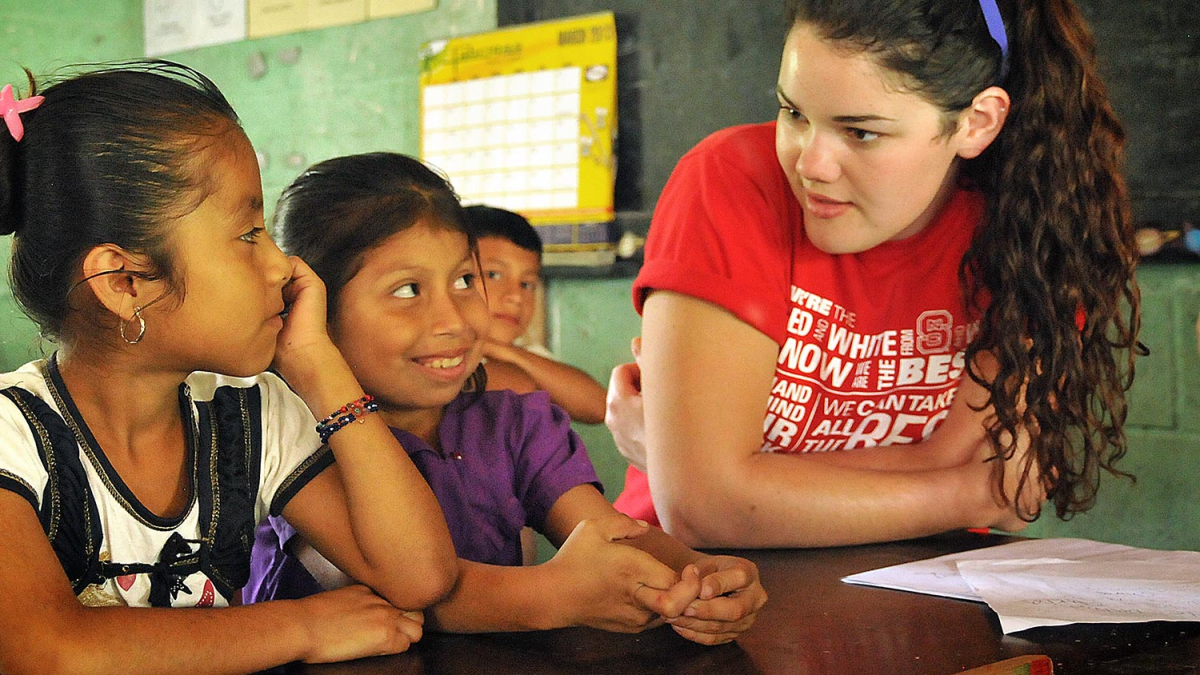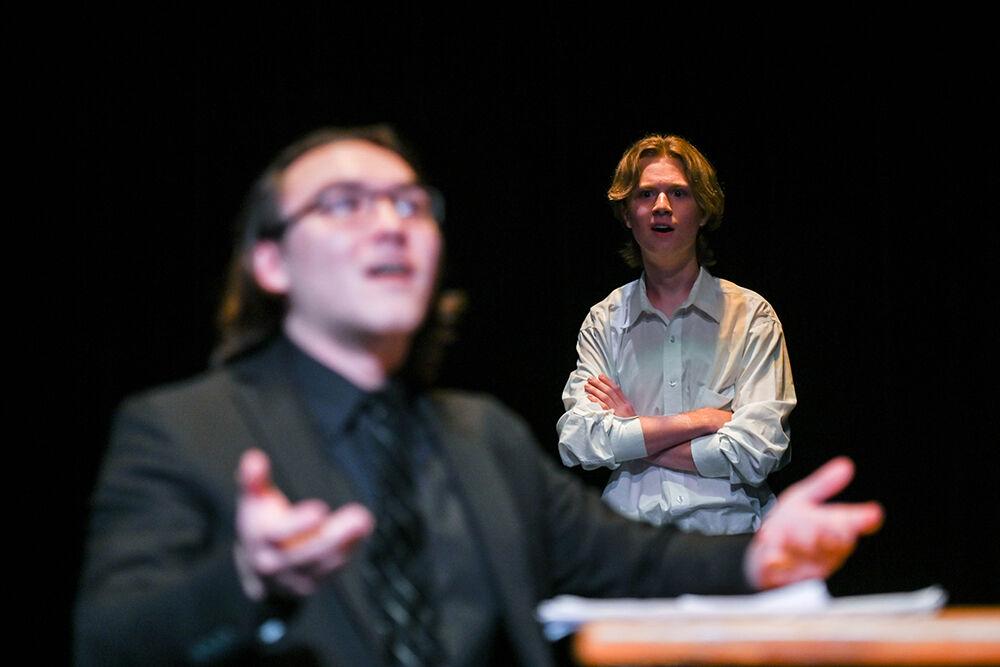The dust was caked on the wheels of Joyce White’s moped almost as thick as it was layered on her skin from the knees down. The moon was en route to settle in its nightly position as a warning that curfew was drawing near. The onset of nightfall, mixed with the intermittent jolts of energy from her dying moped, frightened her. A recent coup in her host country made travel after nightfall, dangerous for this lone Peace Corps volunteer.
White’s time as a Peace Corps volunteer had the occasional brush of danger, but after being home for 35 years, she credits both the hard times — and the more-often good times — to her enriching experience right after college.
“You have to take the opportunities life gives you when it gives them to you,” White said.
NC State students are surrounded by resources that can guide them in almost any direction after graduation. Being a Peace Corps volunteer can boost one’s resume, support a future career in a variety of fields, and give one the opportunity to both live in and contribute to a different culture.
White is one of more than 220,000 returned Peace Corps volunteers who have a unique story to tell from their time abroad. Established in 1961 by President John F. Kennedy, the Peace Corps has granted thousands of Americans the opportunity to serve their country and the world. During a minimum two-year service in one of the 60 countries involved, Peace Corps volunteers educate, solve problems and form relationships with communities they otherwise would not have the chance to interact with.
March 1 marked the 57th anniversary of the founding of the United States Peace Corps.
The Peace Corps website describes the volunteer program as a “service opportunity for motivated change makers to immerse themselves in a community abroad, working side by side with local leaders to tackle the most pressing challenges of our generation.” Although the opportunity does not come without hardships, the impact of Peace Corps has longevity throughout generations; it continually produces a shared understanding of culture and a new meaning of beauty that is derived from difference.
In 1981, White was one month out of Kenyon College in Gambier, Ohio, and filled with curiosity when she departed into the unknown territory of Peace Corps. Stationed in the capital city Ouagadougou, Burkina Faso, White taught English as a second language at an Italian mission school. Her lively classroom of 15- to 19-year-old students regularly guided White off topic to inquire about dating in the West. When the priests weren’t looking, the boys would use White as a messenger to pass love notes to the girls at a separate school. It was through these informal exchanges that White’s students learned the English language and taught her a great deal of their culture.
Despite their differences in age, color, upbringing, nationality and language, White found much they could share and learn from one another. And forming relationships with her students showed White the importance of perception.
“It seems to me that many around the world and in the United States continue to be wary or dismissive of those different from themselves — a mindset that is born of fear and insecurity,” she said.
When White settled back into the States in 1983, the job hunt began. She was faced with back-to-back rejections for a position with a publishing company. Unsatisfied with the outcome, she called one of the companies and asked to speak with management to show just how qualified she truly was. Her success as a teacher and acquired survival skills gave her an unparalleled confidence that she could accomplish anything. She got the job.
Fast-forward to 2010 when Anna Martin, an NC State alumna from Asheville, set out on her own Peace Corps experience as a deaf-education volunteer in Busia, Kenya. As a recent college graduate with a degree in international studies, Martin knew she wanted to pursue a career in sub-Saharan Africa, but was uncertain what that entailed. At a rural school in Busia, she taught classes for deaf students of all ages. It was not until her time abroad that she realized her extensive love for teaching and advocating for children with disabilities.
“I had direction, but Peace Corps gave me passion,” Martin said.
Martin challenged her students, and her students challenged her in return. She explained that she often had to adapt the original syllabus to accommodate her students’ abilities. Flashcards and interactive games became her best friend. Martin never considered herself the creative type until she was forced to improvise with limited resources.
Martin spoke of her ability to teach a wide range of students.
“I now have the confidence to approach people of different languages and cultures,” Martin said. “I understand they are more like myself than they might appear.”
Due to her love of Kenyan Sign Language and the deaf community, Martin remained in Kenya for an additional three years after her Peace Corps service was complete in 2012. She went on to pursue a graduate degree at Duke University and is now NC State’s Peace Corps recruiter.
Peace Corps Volunteers play a role in bridging the divide between the United States and foreign countries. According to White, the Peace Corps cultivates friendships, develops universal skills and instills deep-rooted confidence in those who rise to the challenge. For White, it proved a particularly empowering venture in terms of personal and career-based growth.
“I can do anything now,” White said.
To learn more about the Peace Corps, contact NC State’s Peace Corps recruiter Anna Martin at [email protected].












